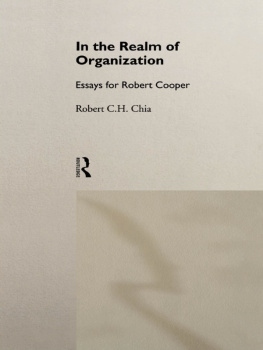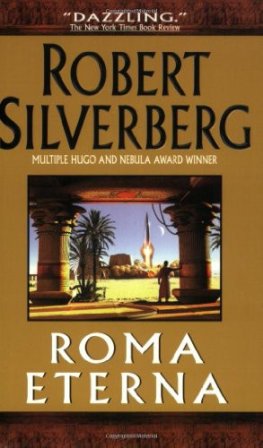IN THE REALM OF ORGANIZATION
The study of organization in recent years has been dominated by administrative, economic and performative concerns. The contributors to this book acknowledge the impact of Robert Cooper on their own work and develop further his insistence that organizational analysis must be understood in terms of the rationalization of society as a whole.
Among the contributors are many of the leading experts in organizational theory. Chapters cover a wide area of interest, including organizational science and postmodernism, the logics of organizing and instrumental experience. In doing so, the book breaks new ground, departing from an emphasis on organizations as social objects and moving towards a position of analysis which situates itself in the wider context of late modernity. It is therefore essential reading for students across a range of disciplines, including sociology, management and organizational behaviour as well as political studies. It will also be of interest to all professionals who desire to have a better understanding of organizational society and of the future direction of organization studies.
Contributors: Kenneth J.Gergen, Tojo Joseph Thatchenkery, Haridimos Tsoukas, Paul Jeffcutt, Muffy Thomas, John Law, Jos Malav, Rolland Munro, Jannis Kallinikos, Pippa Carter, Norman Jackson, Hugh Willmott.
Robert C.H.Chia is senior lecturer in organizational studies at the University of Essex. His previous publications include Organizational Analysis as Deconstructive Practice (Berlin, 1996).
First published 1998 by Routledge
11 New Fetter Lane, London EC4P 4EE
This edition published in the Taylor & Francis e-Library, 2004.
Simultaneously published in the USA and Canada
by Routledge
29 West 35th Street, New York, NY 10001
Editorial matter 1998 Robert C.H.Chia
Individual contributions 1998 individual contributors
All rights reserved. No part of this book may be reprinted or reproduced or utilised in any form or by any electronic, mechanical, or other means, now known or hereafter invented, including photocopying and recording, or in any information storage or retrieval system, without permission in writing from the publishers.
British Library Cataloguing in Publication Data
A catalogue record for this book is available from the British Library
Library of Congress Cataloging in Publication Data
A catalogue record for this book has been requested
ISBN 0-203-20903-6 Master e-book ISBN
ISBN 0-203-26727-3 (Adobe eReader Format)
ISBN 0-415-12699-1 (Print Edition)
CONTRIBUTORS
Pippa Carter is Senior Lecturer in Organization Studies at the University of Hull, UK.
Robert C.H.Chia is senior lecturer in Organizational Studies at the University of Essex, UK.
Kenneth J.Gergen is the Mustin Professor of Psychology at Swarthmore College, Pennsylvania, USA.
Norman Jackson is Senior Lecturer in Organizational Studies at the University of Newcastle Upon Tyne, UK.
Paul Jeffcutt is Director of the Institute for Organizational Analysis at the University of Hull, UK.
Jannis Kallinikos was formerly Associate Professor and head of the Department of Organization Studies at Stockholm University, Sweden.
John Law is Professor of Sociology at Keele University, UK.
Jos Malav is Professor at the Institute de Estudios Superiores de Administracin, Caracas, Venezuela.
Rolland Munro is a Reader in Accountability at Keele University, UK.
Tojo Joseph Thatchenkery is Assistant Professor of Organizational Learning, George Mason University, Fairfax, Virginia, USA.
Muffy Thomas is Senior Lecturer in Computing Science at the University of Glasgow, UK.
Haridimos Tsoukas is Associate Professor in Organization Studies at the University of Cyprus, Cyprus.
Hugh Willmott is Professor of Organizational Analysis at the University of Manchester Institute of Science and Technology, Manchester, UK.
ACKNOWLEDGEMENTS
This volume, the first of a two-part series exploring the connections made in the work of Robert Cooper between technology, modernity and organization, has been three years in the making. I owe a special debt to Pippa Carter and Norman Jackson for their initial enthusiasm when the idea for this collection was conceived during a workshop in Utrecht in January 1991. However, the idea remained dormant for several years until a chance encounter with Rosemary Nixon, then a commissioning editor at Routledge, revived it as a definite possibility through her assurance of Routledges keen support. Many other people have contributed to the realization of this volume through their enthusiastic support, even though their names do not appear here. I am of course most grateful for their continuing support as well as their ideas and suggestions which have helped shape this final version of what has been a truly collective enterprise. Finally, I would like to thank Stuart Morgan, Mark Dibben and Uwe Haiss for their invaluable assistance in the preparation of this manuscript.
Robert C.H.Chia
Boxted, Essex
September 1997
INTRODUCTION
Robert C.H.Chia
The work of Robert Cooper on systemness, information, representation and the logic of organization has substantially influenced and animated debates on the implications of modernism and postmodernism for the analysis and understanding of organizational society, and for the future direction of organization studies. This collection of essays has been brought together as a tribute to the potency and fertility of his ideas and their continuing influence on contemporary organization and institutional studies. It, therefore, represents significant acknowledgement and confirmation of the impact that Coopers thinking has had on the field of organizational analysis and which is reflected more specifically in the work of the various contributors to this volume who are themselves established figures in the field. The essays have been written in response to the scholarly attempts of a social thinker who persistently reminds us that the contemporary obsession with the study of organizations must be understood in broader terms as part of the inexorable rationalization and organization of society.
Cooper is essentially a social theorist with wide interests in social science and philosophy, all of which he brings to the study of organizational and institutional developments in the contemporary social world. His work is distinctive for the range of intellectual resources he draws on as well as for its analytical complexity and imagination. He is, therefore, better seen as a social theorist of modern organizing and institutionalization rather than as an academic specialist who focuses on the study of organizations. This is a deliberate strategy on his part since he recognizes that academic specialisms are themselves institutional (and institutionalized) forms that create and preserve their own professionalized objects of knowledge. The field of organizational studies is no exception to this general rule inasmuch as it defines itself precisely through the definition of organizations as its object of study. For Cooper, this means that the academic field of organization theory assumes the institutionalized form of the objects it studies. To overcome this, it is necessary to question and problematize the established discursive strategies and conventions, which Cooper has attempted to do more generally by de-objectifying organization into a diffused and generic process as opposed to a specific structure. This is more evident in his various recent essays, especially those which deal with representation and cyborganization.










